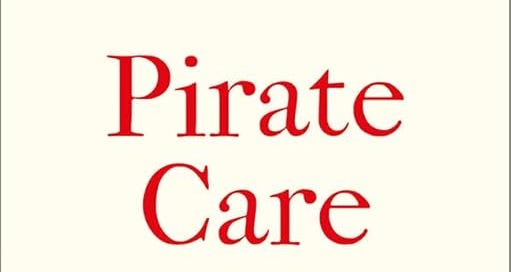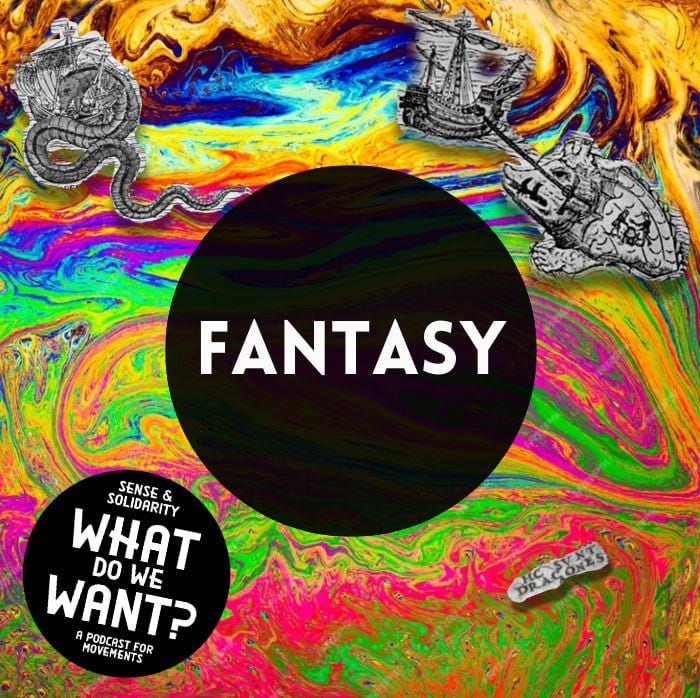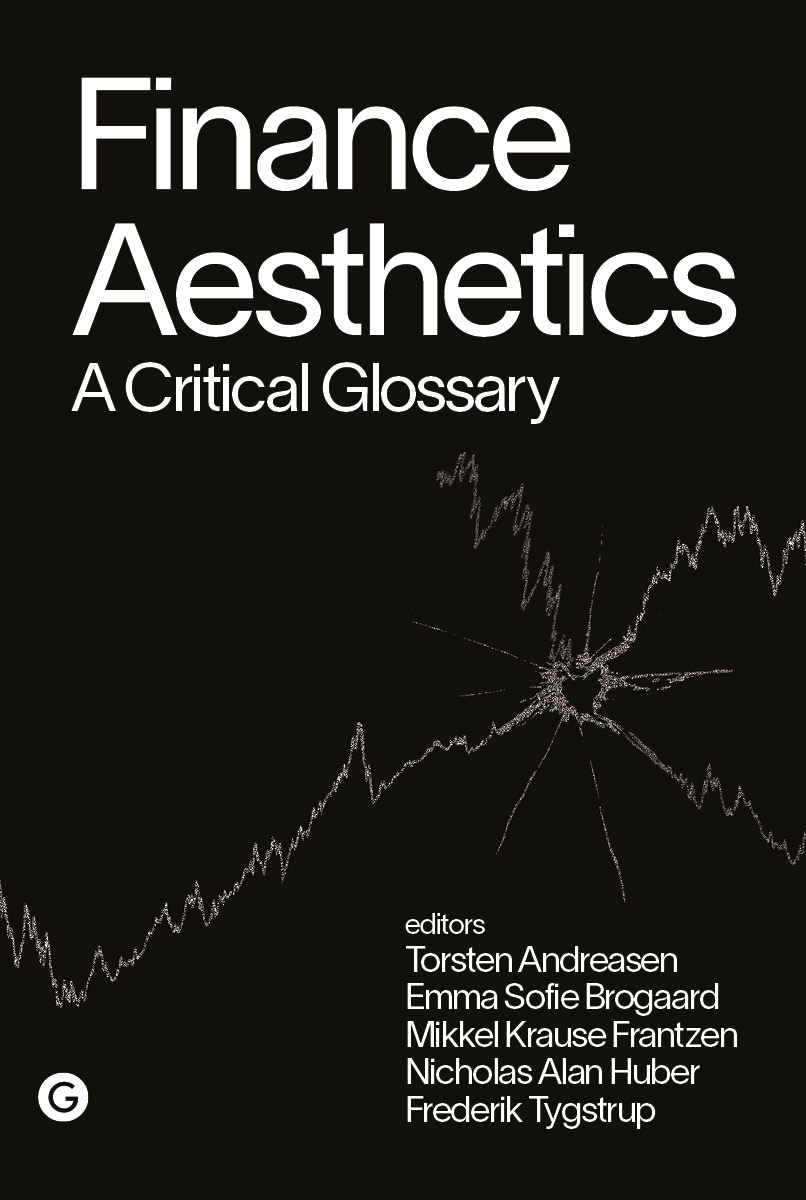Pirate Care: Acts Against the Criminalization of Solidarity
Plus: Don't argue with daddy, a cuddly talk, a London games night, and more...
Pirate Care
In January, Pluto Press will publish #007 in the VAGABONDS series (which I edit): Pirate Care: Acts Against the Criminalization of Solidarity, by Valeria Graziano, Marcell Mars and Tomislav Medak.
In many places around the world, the freedom to simply care for one another is under attack by the powerful, and acts of solidarity are being made illegal. In a moment of struggle defined by the rollback of social welfare programs, the criminalisation of migration, and the right-wing clampdown on bodily autonomy, radical networks of care are fighting back.
From volunteer rescue boats in the Mediterranean to underground labs for preparing gender-affirming hormones, from the sharing of copyrighted health knowledge to the provision of abortion and contraception, people are reclaiming the means to care for one another in defiance of a system that devalues and exploits the labour of care.
Against atomised despair, Pirate Care shows that fighting back isn't only about legal and legislative changes but also about organizing, direct action, and disobedient care.
I don’t think this book could come at a more important time. Around the world, solidarity is under attack and cruel regimes are targetting care activists are in the crosshairs. This book offers inspiring examples and critical theories to help us build a world within, against and beyond.
Pirate Care: Acts Against the Criminalization of Solidarity is now available for preorder worldwide, alongside all the other books in the VAGABONDS series, including the forthcoming To See In the Dark: Palestine and Visual Activism Since October 7, by Nicholas Mirzoeff (which, BTW, will be launched in London on January 16 - see below).
We need your help! Pirate Care’s Valeria, Marcell and Tom are keen to promote the book and the important stories it tells. If you might like to invite them to your community, either in person or virtually, please get in touch!

Fantasy (and reality)
This week, Sense & Solidarity is releasing episode 4 of What Do We Want?, the podcast Sarah Stein Lubrano and I host about the weird, wild and wonderful stuff that brings movements for collective liberation together… and drives them apart.
This time we’re talking about FANTASY!
Why do people believe things that are utterly idiotic and how can we convince them otherwise?
Why are we always having arguments in our head with the wrong person?
And What are the unspeakable fantasies that keep us going?
You can listen to the episode.
You can also read the accompanying essay: “Don't Argue with Daddy, or Cultivating Better Activist Fantasies”
On the podcast, we’re joined by veteran Toronto activist and educator Sharmeen Khan, who speaks about the importance of having a utopian vision and being the subject of very serious legal attacks for standing up for Palestinian human rights. You can read Naomi Klein’s summary of the case.
If you have the capacity, please contribute to the fund for Sharmeen and other activists’ legal defence and sign a letter to the relevant authorities demanding these spurious charges be dropped.
Why do so many people insist on believing in systems that hurt them?
Why do so many of us dwell in fantasy, rather than facing reality?
(Wait, is dwelling in fantasy an option? Why weren’t we told?)
In this episode of WHAT DO WE WANT? (a podcast about what brings social movements together and drives them apart) Max and Sarah dive deep into the murky waters of FANTASY, desire and illusion to ask questions like:
How do we break through destructive ideologies?
How can we win arguments (and when should we)?
And should we just abandon activism?
Then we’re joined by veteran Toronto-based activist, movement trainer and editor Sharmeen Khan, who tells us about the state repression that broke her fantasies and what she dreams of now.
It's podcasting that accompanies you right to the precipice of Mount Doom and helps you throw away your Precious.
You can listen to this and other episodes here, or be searching for WHAT DO WE WANT? in your podcast app.
Upcoming talks and events in London and elsewhere
On December 3-4 I’ll be in Bern for the 2nd International Conference on Just Transition in the Palm Oil Sector.
On Tuesday, December 10 at 6pm I’ll be in dialogue with VAGABONDS author Phanuel Antwi about his book On Cuddling: Loved to Death in the Racial Embrace at UCL’s Institute of Advanced Studies (where I am currently a senior visiting research fellow). We’ll be in Seminar Room 20 of UCL’s South Wing.
On December 15 Matteo Menapace and I will be leading an afternoon game-making workshop at Kairos in central London, followed by a radical games night that is open to all. We’ll be playing my new game Billionaires and Guillotines and Matteo’s excellent award-winning game Daybreak and much more besides!
From January 7-15 Sense & Solidarity (Sarah Stein Lubrano and I) will be hosting a writing retreat for radicals wishing to write for broader publics.
On Thursday, January 16th at 6pm Nicholas Mirozeff will be launching his new VAGABONDS book To See In the Dark: Palestine and Visual Activism Since October 7 at UCL’s Institute of Advanced Studies.

Life and death in a sacrificial system
I was very lucky to work with the wonderful Stefan Christoff, of Free City Radio, on a 3-episode podcast mini-series of interviews (including one with me) about capitalism as a system of human sacrifice. You can listen here, and also see the artwork commissioned from Kiva Stimac of Popolo Press.
You can hear…
Nick Partyka on sacrifice in ancient Greece and in our own imperial order
Karen Wang on neoliberalism’s rhetoric and reality of sacrifice and the fashion industry
Max Haiven on palm oil, empire and prisons
Also, my essay on capitalist sacrifice has recently been published in Finance Aesthetics: A Critical Glossary, just out from Goldsmiths Press. You can read an earlier version of the essay on my website.
In a sense, the conspiracy theorists are right: we do live in a world of hideous human sacrifices, superintended by a financially enriched elite. But whereas the conspiracists hallucinate a coordinated cabal of evildoers, the more complex and the more disturbing truth is that the forms of human sacrifice that characterize financialization do not require (and would, in fact, be imperilled by) any such intentional orchestration of efforts. Rather, financialized capitalism must be reckoned as a system, one that reproduces a set of imperatives, enticements, rewards and punishments for competitive economic behaviour that, in only sum, creates an overall movement of capitalism towards a sacrificial world order. No individual needs to utter the prayers or wield the dagger for this system to enact human sacrifice. And whereas the conspiracist imagination fixates on the purity of the innocent victim, notably children, today’s sacrifices are not only individuals in all their complexity, but messy and entangled entities: the climate, the biosphere, the cultural fabric, the very possibility of the future.








